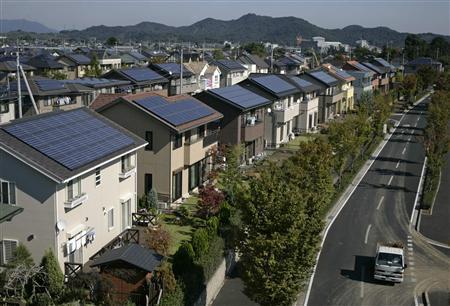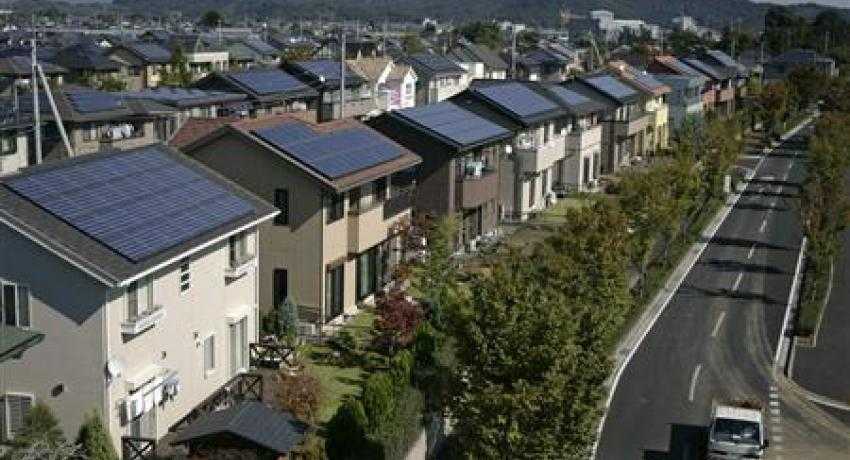Report: Rooftop solar could replace nuclear with pumped hydro storage in Japan
 Japan could replace more than a quarter of the base-load power it used to get from nuclear plants with existing rooftop solar, according to a report from University of Texas researchers.
Japan could replace more than a quarter of the base-load power it used to get from nuclear plants with existing rooftop solar, according to a report from University of Texas researchers.
Because solar panels only produce electricity when the sun is shining, it’s not generally regarded as a contender for base-load power. But if it’s paired with the right kind of storage, there’s no reason it couldn’t be, contend report authors BL Stoll, TA Smith and MR Deinert.
And Japan just happens to have exactly the right kind of storage. The country already has more pumped hydropower storage than any other nation, according to the report. While it was used to back-up the nuclear plants that accounted for 27 percent of the country’s electricity capacity, the UT researchers assert that the hydro storage could be paired with rooftop solar panels to help the country meet peak load demands.
They estimate that using pumped hydro to store electricity generated from existing rooftop solar installations in Tokyo could generate 26.5 percent of the base-load capacity the capital city got from nuclear plants.
If the country’s solar adoption continues to grow, coupling rooftop solar with pumped hydro could quickly offset the entire base-load generation Tokyo received from nuclear plants.
The researchers estimate that it would take 5.6 times the current rooftop solar installations to meet Tokyo’s complete base-load demands, which is feasible. And public sentiment in Japan supports more aggressive adoption of renewable energy production.
Within a year of the 2011 earthquake and tsunami that crippled four of six nuclear reactors at the Fukushima Daiichi facility, releasing radioactive material into the atmosphere, all of Japan’s 54 nuclear plants had been shut down, according to the report. Japan’s electricity costs rose more than 18 percent as the country began importing more fossil fuels. Public sentiment remains staunchly opposed to nuclear power generation with 74 percent of the population against it.
“Japan has few indigenous resources for producing power,” the report reads.
So, the country has been importing fossil fuels. The high cost of that power source has made solar energy more competitive and attractive in Japan.




